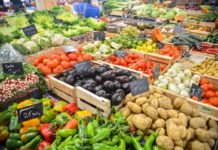Controlling Intestinal Gas Naturally
Intestinal gas, flatulence, farting or breaking wind is a natural part of the digestive process. This odorless gas, although at times embarrassing, is the result of good digestion. Every day our body produces one to three pints of gas that is ultimately passed. Intestinal gas is made up of oxygen, nitrogen, hydrogen, carbon dioxide and methane. If we notice an unpleasant smell, it is because the gas contains other compounds, including hydrogen sulfide and ammonia.
Bacterium that lives in our intestinal tract is what produces most intestinal gas. It digests the food we eat; primarily sugars, starches and cellulose. When ingested sugars are not been properly broken down, they can ferment and produce gas as they pass through the small intestine. Contractions of the small intestine propel this gas through the large intestine, where it is expelled out the rectum. This prevents gas from accumulating in the body, which can cause cramping.
Certain foods produce more gas then others. Some healthy foods such as fruits, vegetables, oatmeal, beans and peas often are the worst offenders. These foods are high in soluble fiber. Fiber slows the digestion of starches in the small intestine, thus promoting increased gas. Fiber, however, has many benefits including promoting a healthy digestive tract, regulating our blood sugar and maintaining normal cholesterol levels.
Normally we pass gas about fourteen times a day. Intestinal gas is only considered excessive if it is being passed over twenty times per day. If someone complains of excessive gas, but isn’t passing it over twenty times a day, then something else may be going on. Perhaps the real concern is the foul odor to their gas, an inability to hold gas back, or even a problem with soiling their undergarments when gas is being passed. Thankfully there are a number of natural, alternative health remedies we can try which may help to reduce or eliminate the embarrassment of intestinal gas from our lives.
Recommendations For Wellness
- Avoid foods such as beans, broccoli, cabbage, asparagus, coffee, eggs, fish, prunes, radishes, dates, figs – or artificial sweeteners like sorbitol – which can promote gas production.
- Limit high fat foods. Fats slow the digestion of foods through the stomach and small intestine.
- Avoid milk and milk products, especially if you suspect you are lactose intolerant.
- Try taking a digestive enzyme or digestive bitter tonic before meals to help improve carbohydrate digestion.
- Activated charcoal tablets, when taken before a meal, have been shown to greatly reduce gas formation.
- Ginger, either fresh or in tablet form, is useful in relieving flatulence.
- Catnip and fennel are herbs that are often used to ease bloating and reduce intestinal gas.
- Nature’s Sunshine’s Anti-Gas Formula contains a blend of herbs that assist the body’s efforts to expel gas.
- Supplementation with probiotics such as a cidophilus and b ifidophilus supports healthy bacteria in the digestive tract and keeps gas-producing bacteria in check.
Author Bio
Naturopathic Physician, Dr. Rita Louise, Ph.D. is the author of the books “Avoiding the Cosmic 2×4” and “The Power Within”. It is her unique gift as a medical intuitive and clairvoyant that illuminates and enlivens her work. Let Dr. Louise help you bring health, healing and wholeness back into your life. Medical Intuition & Energy Medicine Certification training classes are now forming. Visit http://www.soulhealer.com or call (972) 475-3393 for more information.










